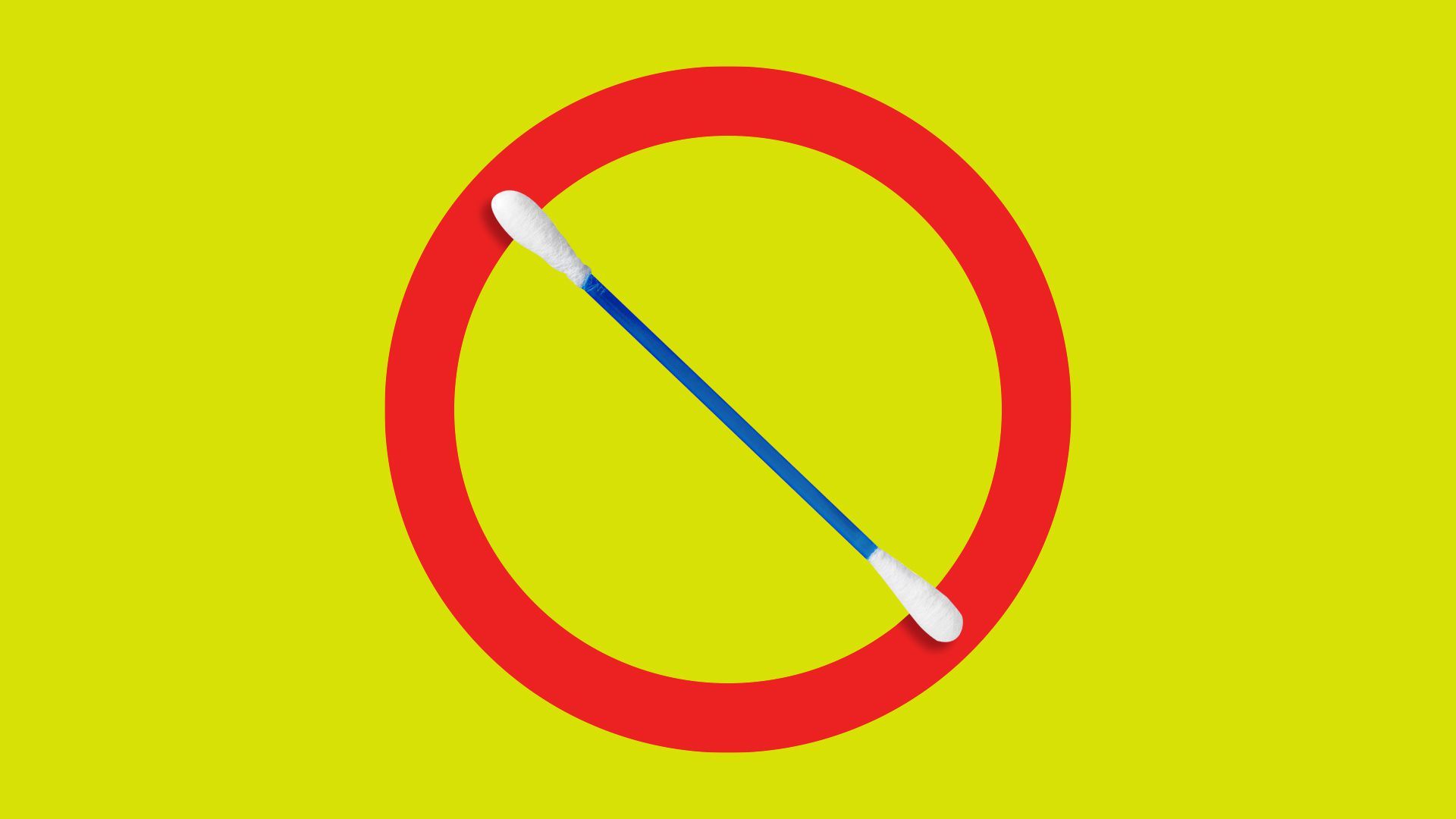| | | | | | | Presented By Deloitte | | | | Axios Future | | By Bryan Walsh ·Feb 20, 2021 | | Welcome to Axios Future, and greetings to NASA's probe Perseverance, now tweeting from its "forever home" on Mars. Today's Smart Brevity count: 1,689 words or about 6 minutes. | | | | | | 1 big thing: Why we're still waiting for rapid, at-home COVID tests |  | | | Illustration: Aïda Amer/Axios | | | | Rapid at-home COVID-19 tests are fast, but the regulatory approval needed to get them in the hands of Americans has been slow to come. Why it matters: Quick, fully at-home COVID-19 tests could make a vital contribution to stemming the pandemic — and open up a new frontier for more constant disease surveillance — but old assumptions about how diagnostics should be used are holding them back. Driving the news: On Wednesday, the Biden administration unveiled a $1.6 billion plan to accelerate COVID-19 testing in schools and other settings, bolster the supply chains for testing materials, and enhance genetic sequencing surveillance. By the numbers: The number of COVID-19 tests carried out per day in the U.S. has dropped by roughly 30% from the peak a month ago. Some of that dip is likely due to declining case numbers. But to advocates of rapid at-home tests, the drop also points to problems in how we use tests — and the kind of tests that have been approved. - COVID-19 tests have mostly been used for the purposes of diagnosing people who may be sick, and most of the tests that have been approved employ highly accurate but often labor-intensive PCR methods that require people to travel to clinics.
Context: Pasadena, California-based Innova produces COVID-19 tests that cost less than $5 and work with the ease of an at-home pregnancy test, yielding results in 15–30 minutes. - Innova's rapid test — which was first submitted to the FDA for approval in August — has yet to receive the emergency use authorization (EUA) needed for wide distribution, a status it shares with many other fully at-home rapid tests.
- "The FDA has been a bit of a challenge," says Innova CEO Daniel Elliott. "We're accustomed to looking at tests as having to be almost lab-grade, and there's just not as much experience in a kind of test this broad that's useful for different purposes."
How it works: Rapid tests like Innova's search for a specific viral protein called an antigen. - Antigen tests are less accurate than PCR. A study by Innova found its test correctly identified 78.8% of cases in a group of 198 samples compared to lab-based PCR results, a lower rate that can result in more false positives and negatives.
- But advocates of rapid testing say the tests are especially good at identifying people who are at the contagious state of their illness, which makes the tests useful as a public health tool.
What they're saying: "We consider tests for at-home use to be a top priority," Jeffrey Shuren, a top FDA official overseeing testing, told The Hill recently. "And if they've got their data and the data looks good, we authorize." - The FDA recently granted an EUA to a fully at-home test produced by Ellume that reported highly accurate results, though with a potential price of $30 or less, it would cost more to scale up.
|     | | | | | | 2. Breaking down the psychology of vaccine hesitancy |  | | | A woman receives a COVID-19 vaccine from a U.S. service member in Boston on Feb. 16. Photo: Joseph Prezioso/AFP via Getty Images | | | | A new survey identifies some of the psychological barriers to taking vaccines — and how to overcome them. The big picture: With COVID vaccine production and distribution ramping up, we're going to reach a moment when supply exceeds demand, which puts a premium on finding ways to persuade the persuadable on the value of vaccines. What's happening: In a survey released on Friday, Surgo Ventures polled nearly 3,000 U.S. adults to determine how best to reach the vaccine-hesitant. - The results were broken down into five groups based on their attitudes toward the vaccines.
By the numbers: - 40% of respondents fell into the enthusiastic camp and reported eagerness to get vaccinated as soon as possible.
- Another 20% were in the watchful group, which means they weren't against the vaccine, but were worried about side effects and didn't want to be first in line.
- 14% were classified as cost-anxious — they tended to be younger and live in rural areas, and they perceived that the costs of the vaccine in time and money exceeded the benefits.
- 9% were system distrusters, who were more likely to be minorities, and believed the vaccine had not been adequately tested for their group.
- The last 17% were conspiracy believers who tended to be Republican and had little fear of COVID-19 itself. They often subscribed to more outlandish and harmful theories about vaccines.
Be smart: Reaching different groups demands different strategies, according to the survey's authors. - The enthusiastic just need easy access to the vaccine, while the watchful can be persuaded by seeing friends and community members get shots.
- The cost-anxious can be reached through lower prices and access, while the system disrupters can be reached through listening sessions that air their concerns.
- Conspiracy believers, however, should be deprioritized, allowing resources to flow to more persuadable groups.
The bottom line: We can't reach everyone, but with psychologically tailored strategies, we can hopefully reach enough. |     | | | | | | 3. Making quantum computing useful |  | | | Illustration: Sarah Grillo/Axios | | | | New research shows how quantum computing can be used effectively on real-world problems. The big picture: Quantum is undoubtedly the next frontier in computing, but theory still outpaces practice. What's happening: In a paper published in Nature Communications this week, researchers from the quantum computing company D-Wave and Google demonstrated that D-Wave's system could simulate a programmable quantum magnetic system more than 3 million times faster than corresponding classical methods. Why it matters: The problem the study tackles — which has its roots in research that won the Nobel Prize for Physics in 2016 — is taken from the real world, albeit the highly complex real world of exotic matter. - "This isn't some made-up example that is only designed to showcase the DNA of a quantum computer," says Andrew King, director of performance research at D-Wave.
Between the lines: The research also demonstrated one of the advantages of quantum computing: its ability to more accurately simulate reality, which will be useful for material sciences and optimization problems in logistics. The catch: Quantum computers are still too error-prone and finicky for wide use, and just last week, a Microsoft researcher announced that he would need to retract a 2018 paper that had provided much of the scientific foundation for the company's quantum computing efforts. |     | | | | | | A message from Deloitte | | Five ways companies are emerging stronger | | |  | | | | Executives say some major changes during the pandemic have proven beneficial. The reason: Consumer companies are thriving by making faster decisions, going back to basics, overcoming an eventless existence, embracing a redefined convenience and engineering safer jobs. Discover how. | | | | | | 4. When the Earth's magnetic poles flipped out |  | | | The aurora borealis — which results from disturbances in the Earth's magnosphere caused by solar winds — seen above Murmansk, Russia, last month. Photo: Lev Fedoseyev\TASS via Getty Images | | | | The Earth's magnetic poles temporarily reversed themselves 42,000 years ago, triggering environmental catastrophe, according to a new study. Why it matters: The research sheds new light on a period of chaotic climatic change and human upheaval — and provides a warning that the same thing could happen to us. Driving the news: In a study published Thursday in Science, researchers analyzed the rings found in ancient kauri trees in New Zealand to produce a radiocarbon archive. - The tree ring data shows that nearly 42,000 years ago, the Earth's geomagnetic field flipped and stayed reversed for some 800 years before returning to normal.
What happened: Scientists knew that the reversal — called the Laschamp Excursion — had happened, but the new study provides a more accurate time frame. - It also shows just how catastrophic the event likely was for the Earth and those living on it, including humans and their evolutionary cousins the Neanderthals.
- With virtually no protective magnetic field, and with solar activity at an ebb, the planet was bombarded with high-energy particles from outer space, leading to rapid climate change and spectacular electrical storms.
- It would have been "like the end of days," said Chris Turney, an Earth scientist at the University of New South Wales and a lead co-author on the paper, in a statement.
What's (hopefully not) next: Earlier research has indicated that the Earth's magnetic north pole has been moving at an accelerating pace, which could presage another reversal. |     | | | | | | 5. Worthy of your time | | A first-of-its-kind geoengineering experiment is about to take its first steps (James Temple — MIT Tech Review) - An inside look at plans for the first field test of solar geoengineering, the chemotherapy approach to averting climate change.
The moments when we could have accidentally ended humanity (Richard Fisher — BBC Future) - From dismissing some scientists' worries of setting the atmosphere on fire during the first nuclear test to possibly allowing alien microbes to hitch back on Apollo 11, we've been too cavalier with potentially world-ending threats.
The digital afterlife is here to help you plan your death (Marianne Bray — Rest of World) - COVID-19 has pushed everything online, including how we mourn and bury our dead.
The Texas blackout and preparing for the past (Roger Pielke Jr. — The Honest Broker) - Climate change is going to make it harder to prepare for the future, but we're not even up to preparing for what's hit us in the past.
|     | | | | | | 6. 1 religion thing: The Church of AI is no more |  | | | Illustration: Eniola Odetunde/Axios | | | | A church dedicated to the appreciation of AI and founded by self-driving car engineer Anthony Levandowski has shut down, according to reporting by TechCrunch. Why it matters: The Way of the Future church may have looked like a prime example of the weirdness of Silicon Valley, but it may eventually serve as an early indicator of how AI could fundamentally alter the human worldview. Driving the news: The Way of the Future — which Levandowski set up in 2015 — was officially dissolved at the end of last year, according to state and federal records cited by TechCrunch. The backstory: The Way of the Future first came to light in a 2017 article in Wired, which cited documents stating that the church would be dedicated to "the realization, acceptance, and worship of a Godhead based on Artificial Intelligence (AI) developed through computer hardware and software." - The church was controversial from the beginning, not the least because the public reveal occurred as Levandowski was in the middle of a major legal dispute with his former employer Google that eventually led to him being sentenced to 18 months in prison for stealing trade secrets.
What they said: "What is going to be created [in AI] will effectively be a god," Levandowski told Wired in 2017. "If there is something a billion times smarter than the smartest human, what else are you going to call it?" Our thought bubble: I can see some similarities between God and how some people think about AI. Of note: Levandowski ultimately secured assistance from a more earthly intercessor: Donald Trump, who pardoned him during the ex-president's last days in office. |     | | | | | | A message from Deloitte | | The end of one-size-fits-all customer experiences | | |  | | | | Physical and digital experiences are set to merge, creating bespoke customer journeys for billions of people, Deloitte has found. An example: Shoppers could soon have a virtual stylist arrange a new wardrobe in a private in-store dressing room, blending the digital and physical. Read more. | | | | | | Axios thanks our partners for supporting our newsletters.
Sponsorship has no influence on editorial content. Axios, 3100 Clarendon Blvd, Suite 1300, Arlington VA 22201 | | | You received this email because you signed up for newsletters from Axios.
Change your preferences or unsubscribe here. | | | Was this email forwarded to you?
Sign up now to get Axios in your inbox. | | | | Follow Axios on social media:    | | | | | |









No comments:
Post a Comment